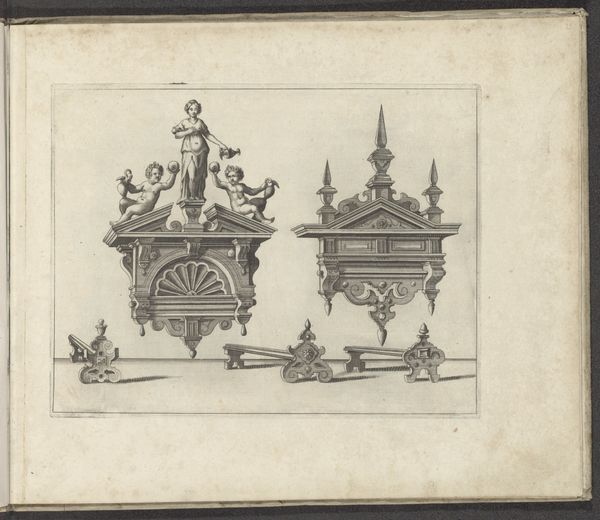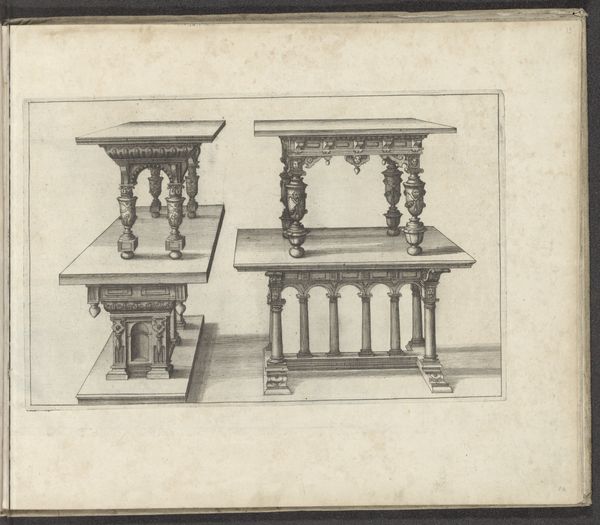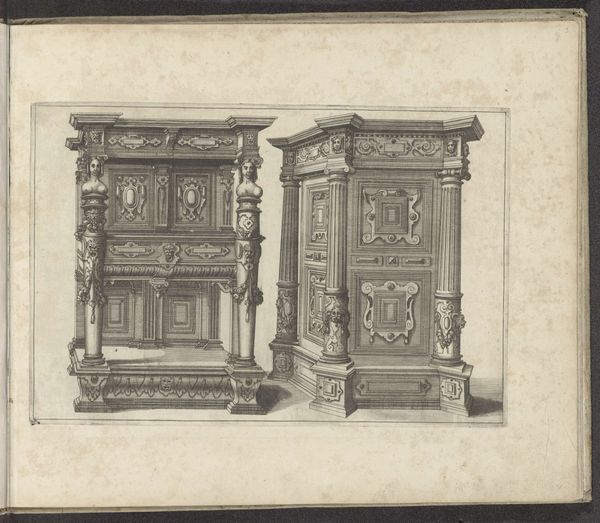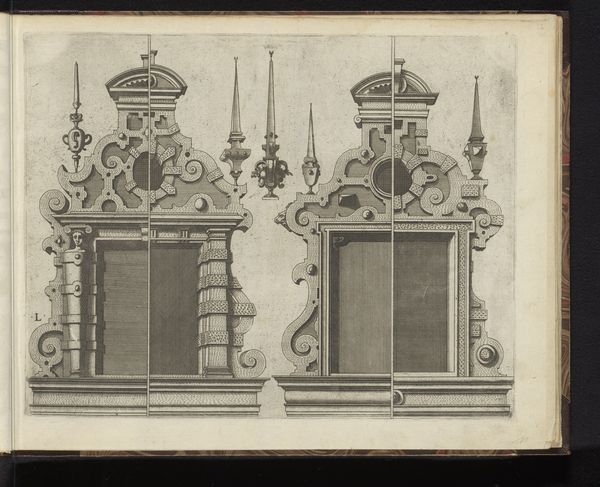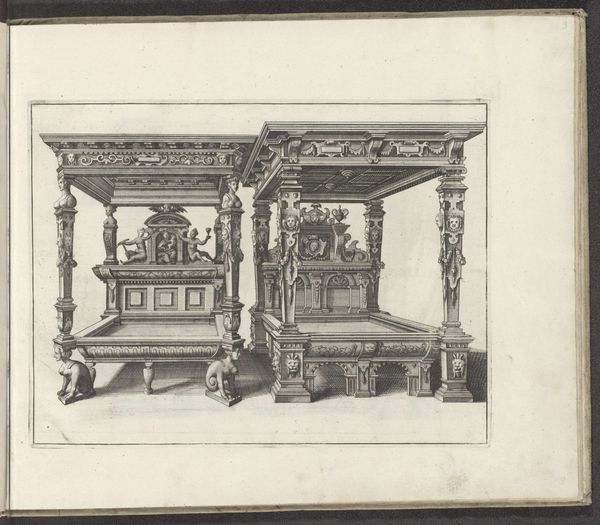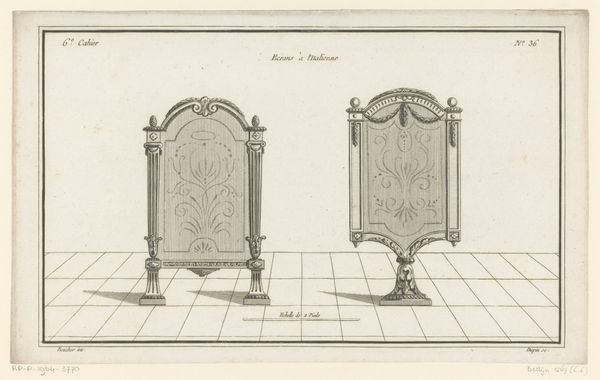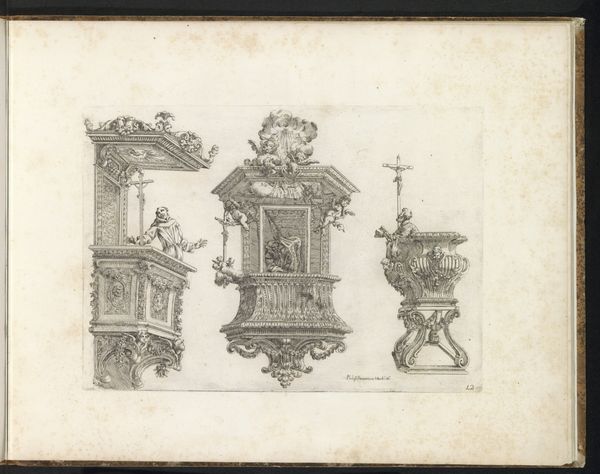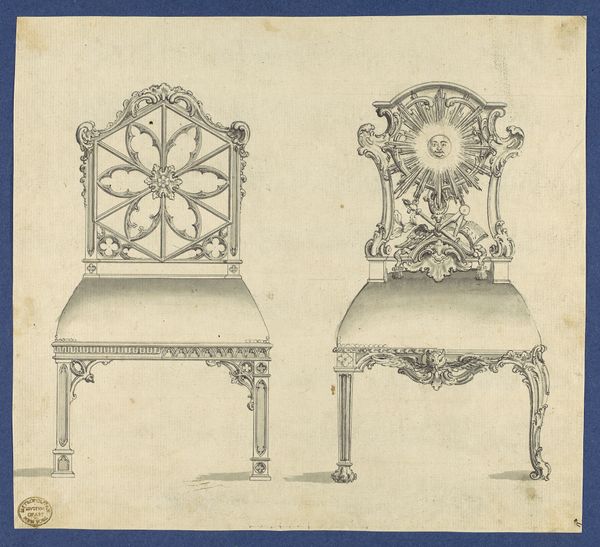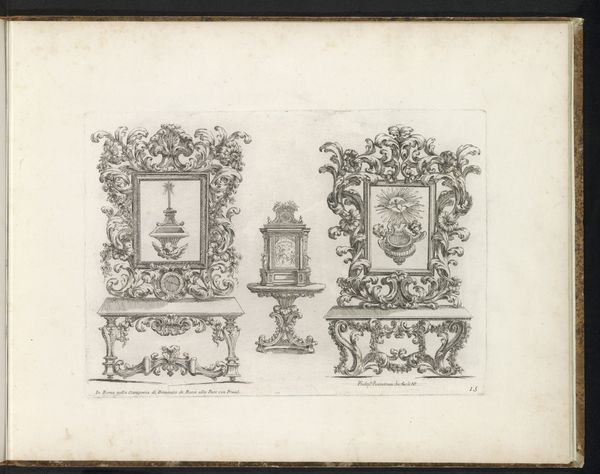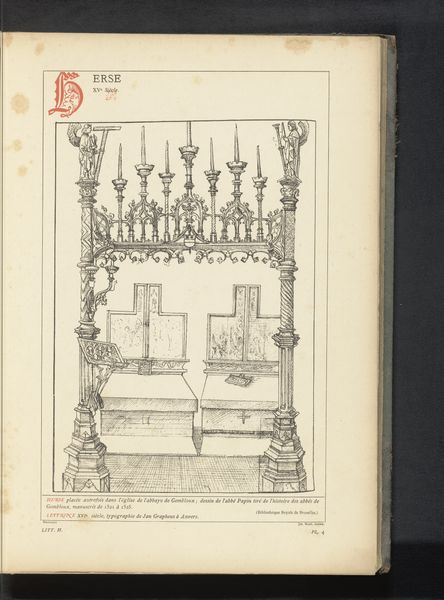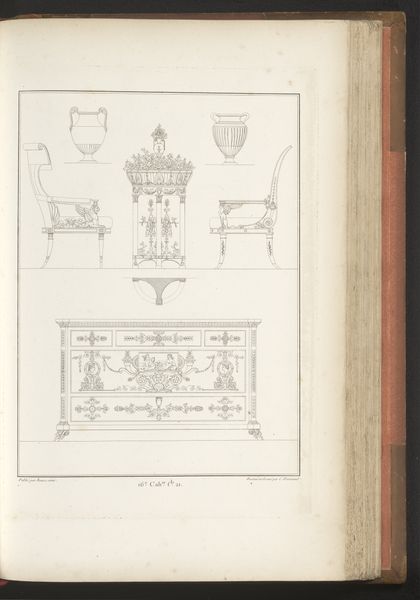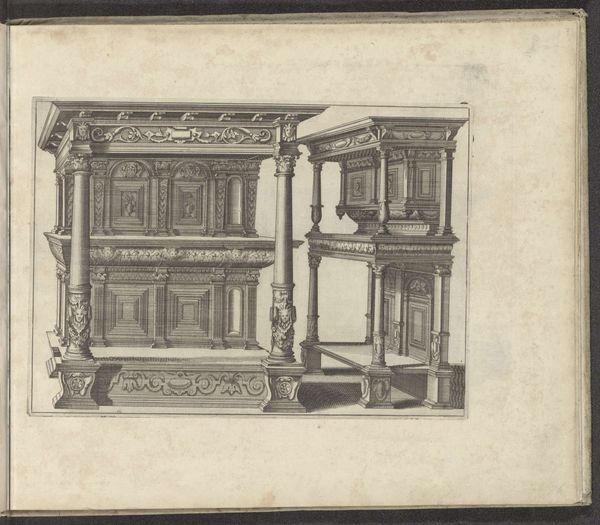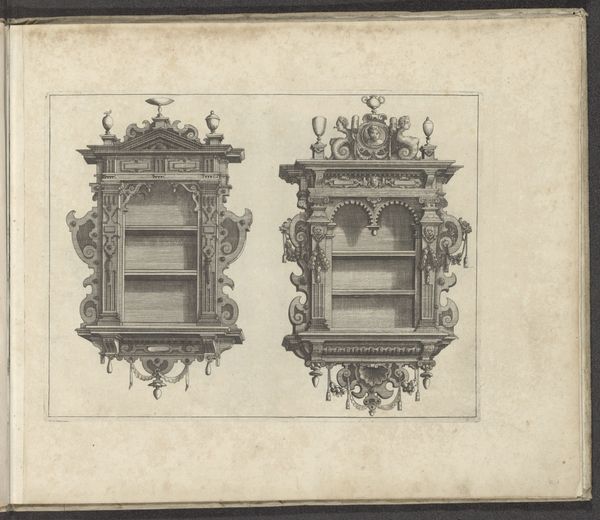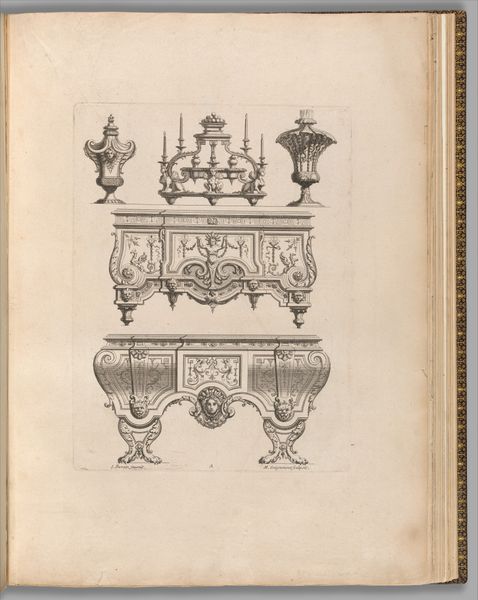
drawing, paper, ink
#
drawing
#
dutch-golden-age
#
paper
#
form
#
ink
#
line
#
genre-painting
#
realism
Dimensions: height 206 mm, width 254 mm
Copyright: Rijks Museum: Open Domain
Editor: Here we have "Three High-Backed Chairs," a drawing in ink on paper from 1658. It’s stark and linear. How would you describe the composition? Curator: The composition utilizes a meticulous line drawing technique, prioritizing the accurate rendering of forms. The arrangement, a triptych of sorts, allows for a comparative analysis of each chair’s structure and ornamentation. Note the strategic use of hatching to denote volume and shadow; it contributes to a sense of depth despite the work's inherently two-dimensional nature. What effect does this rigorous depiction have on you? Editor: The realism makes it seem almost architectural. Are these meant to be plans? Curator: The architectural quality is certainly palpable. Whether these drawings served as direct precursors to physical construction remains uncertain. The function of art isn't always pragmatic; close observation reveals the refinement of lines in depicting material, showcasing a clear attention to detail. Considering its stylistic lineage, how might this connect with larger art trends? Editor: The clear lines feel so Dutch Golden Age. I think of the attention to detail in the interiors we see in paintings from that time. So, what do you make of the absence of people? Curator: The chairs, isolated and presented formally, operate as studies in form and function. Their presence without human interaction invites a consideration of pure geometric structure versus organic existence, perhaps asking, "What makes a form successful?" Editor: It’s interesting to think of these objects on their own, without considering their function. Thanks! Curator: Indeed. Reflecting upon the artist's commitment to line and form unveils a depth often overlooked in the realm of the functional.
Comments
No comments
Be the first to comment and join the conversation on the ultimate creative platform.
